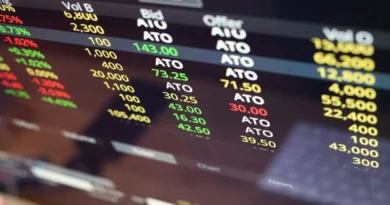There is a demand and supply mismatch in securities, says Sebi’s Ananth Narayan
Narayan said that trading in index options – specifically close to expiry – resembles a slot machine in a casino, with individuals putting coins into the machine, hoping to hit the jackpot.
There is a mismatch between the demand and supply for securities, said Ananth Narayan, whole-time member of the Securities and Exchange Board of India (Sebi) in FICCI’s 21st Capital Market Conference in Mumbai.
“The Rs 3.1 lakh crore annual net demand for securities from mutual funds, domestic institutional investors, and individuals in the secondary market over the past three years significantly exceeds the Rs 2 lakh crore yearly issuance in the primary market, including IPOs, FPOs, Preferential Allotments, QIPs, Rights Issues, and OFS,” said Narayan.
On trading close to expiry
Narayan said that trading in index options – specifically close to expiry – resemble a slot machine in a casino, with individuals putting coins into the machine, hoping to hit the jackpot. He said that it would be unfair to compare all of equity F&O with a casino but one should make the casino comparison when options are trading closer to expiry.
This is because on expiry day, the time value of option premiums drops, allowing speculators to buy options with minimal capital. As the day progresses, premiums can fall to a few hundred rupees, enticing individual speculators to trade frequently, hoping for significant profits from small index movements. This creates a surge in trading activity as speculators seek quick gains from the cheap options., added Narayan.
Narayan said that the frenzied trading on expiry day, also raises questions of market stability and possible vulnerability to manipulation.
Losses in futures and options same
Narayan said that fewer individuals tend to trade in futures than in options. However, as per the SEBI F&O study of January 2023 the average net losses made by individuals is almost identical in both futures and options.
On self-regulation
Narayan said that in FY24, volume discounts on exchange fees led trading members to collect around Rs 2,700 crore more from investors than they owed to exchange. This created perverse incentives for larger brokers to encourage higher trading volumes. While this issue has been addressed, ideally, it should have been resolved by market participants without SEBI’s intervention, he added. Like regular health checkups reducing the need for medical intervention, a self-regulating market ecosystem would minimize the necessity for SEBI’s involvement, added Narayan.
Open to suggestions
Narayan said that in addition to both the expert working group for F&O, the secondary market advisory committee, will debate other structural issues on derivatives markets. “This will include ensuring that we are measuring and monitoring risks accurately and ensuring that there is some balance and connect between underlying cash and derivative markets,” said Narayan. The committee will remain open to suggestions on the same, Narayan added.
Disclaimer: The views and investment tips expressed by experts on Moneycontrol.com are their own and not those of the website or its management. Moneycontrol.com advises users to check with certified experts before taking any investment decisions.
Bymoneycontrol




